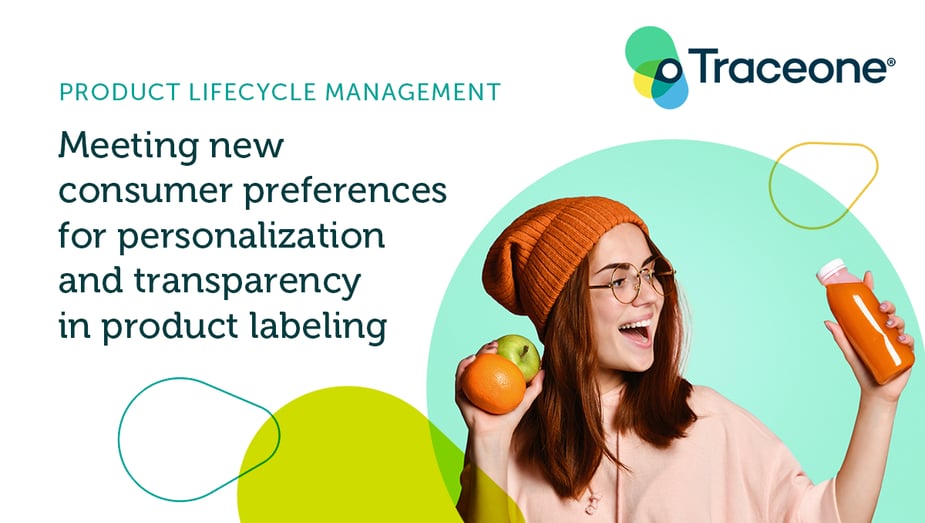
- Home
- PLM & Compliance Blog
- Meeting new consumer preferences for personalization and transparency in product labeling
Meeting new consumer preferences for personalization and transparency in product labeling
|
Product Lifecycle Management
|
Regulatory
Posted By:
Trace One
How Changing Consumer Preferences Are Creating New Needs for Product Lifecycle Management Systems
Newer generations of customers have higher expectations of CPG retailers and process manufacturers in terms of engagement, authenticity, and transparency. This has opened new opportunities for leading brands to differentiate themselves while gaining consumer loyalty and created new challenges for their product development and supply chain management teams.
Manufacturers need to be able to move quickly and respond accurately to feedback from their buyers. Younger consumers are more digitally engaged, with word – good or bad – spreading quickly on social media, there is now greater potential for brands to face rapidly escalating crises if they don’t engage successfully with their communities.
According to a recent study released by NielsenIQ, Gen Z consumers in particular “are looking for highly curated, personal, and purpose-driven experiences both in products and in store choice … they are choiceful with their attention, purposeful with their time, and conscious of their consumption.” NielsenIQ further notes that this heightened engagement extends into the political process, helping drive regulations on topics like sustainability and transparency. These new pressures from Gen Z and other younger consumers are putting Product Lifecyle Management (PLM) solutions front-and-center for manufacturers. To successfully engage with new consumers and shifting demands, manufacturers need accurate, immediate insights into data about product formulations and processes, at every step of the business.
To see how PLMs aid formula development, you can read our whitepaper for CPG manufacturers here.
Managing Complexity with Product Data
Meeting your consumers’ expectations isn't just about showing them what’s inside the packaging; it’s about ensuring that they know that what's inside is authentic, sustainable, and ethically sourced. To be able to do this, brands need a holistic view of their products, available to diverse teams from Marketing, to Research and Development, and Production.
Enter Product Life Cycle Management software, which serves as an integrated hub and single source of truth to ensure that all your teams are on the same page. By bridging information gaps and eliminating silos, PLM systems enable brands to stay both competitive and compliant.
Keeping Ahead of Expectations and Regulations with Increased Data and Transparency
“62% of Gen Z shoppers prefer to buy from sustainable brands, and a staggering 73% are willing to pay more for sustainable products,” according to a recent white paper from First Insight. These preferences are reshaping expectations around product transparency, ethical sourcing programs, information provided on packaging, and more. To meet these expectations will require clarity and accuracy throughout your product development cycle.
Increasing supply-chain transparency and formulation clarity is not just about winning over consumers—with the changing socio-political landscape, product labels and manufacturing regulations are also undergoing a transformation. Soon, sustainable practices won't be just a nice-to-have but a mandate for entering particular markets. PLM software helps manufacturers meet these needs and offer ever greater amounts of data and transparency about their products and processes.
Preparing for the Hyper-Personalized Future
As new generations of consumers grow in purchasing power, their expectations for hyper-personalized products are expected to grow with them. NielsenIQ’s study on Gen Z consumers noted: “they expect brands to be inclusive and cater to a variety of individual needs and preferences. We see this playing out in the beauty and personal care space with the rise of personalized hair care routines, customized vitamins, and perfected tone matched cosmetics.”
With this shift towards personalization, manufacturers will face the challenge of managing increased product line complexity. This requires brands to maintain their quality assurance across more diverse and intricate supply chains. Investing in a data-driven PLM now will put companies on a strong footing to provide more innovative and information-rich products as consumer demand for sustainability, transparency, and specificity continues to grow.